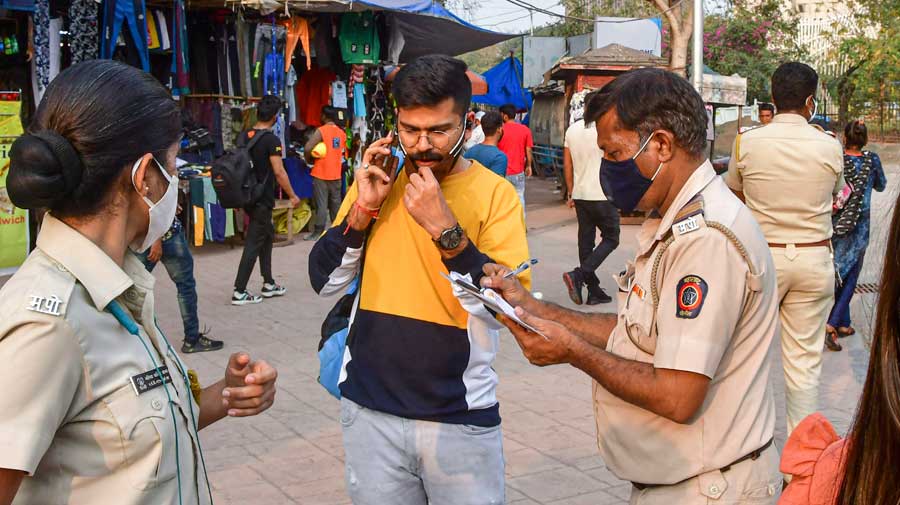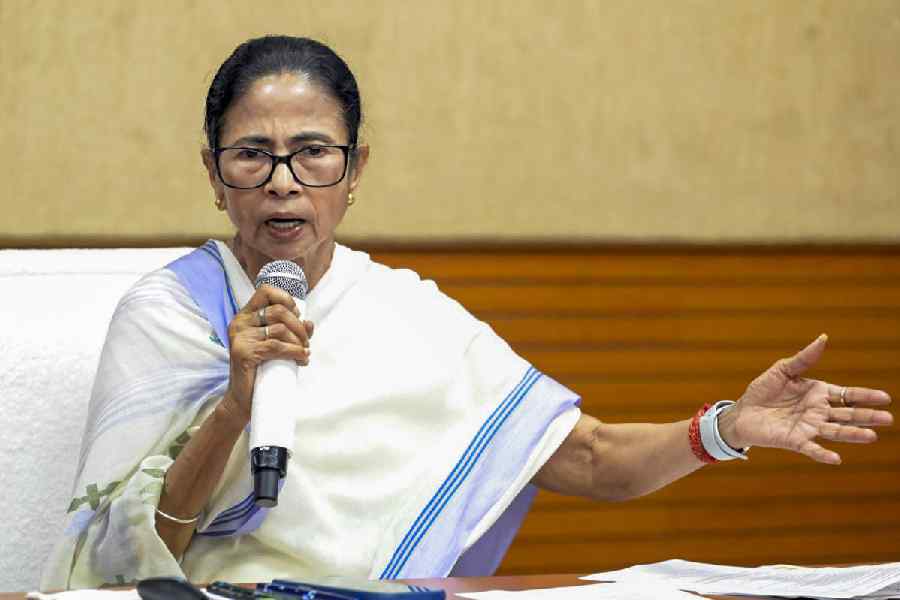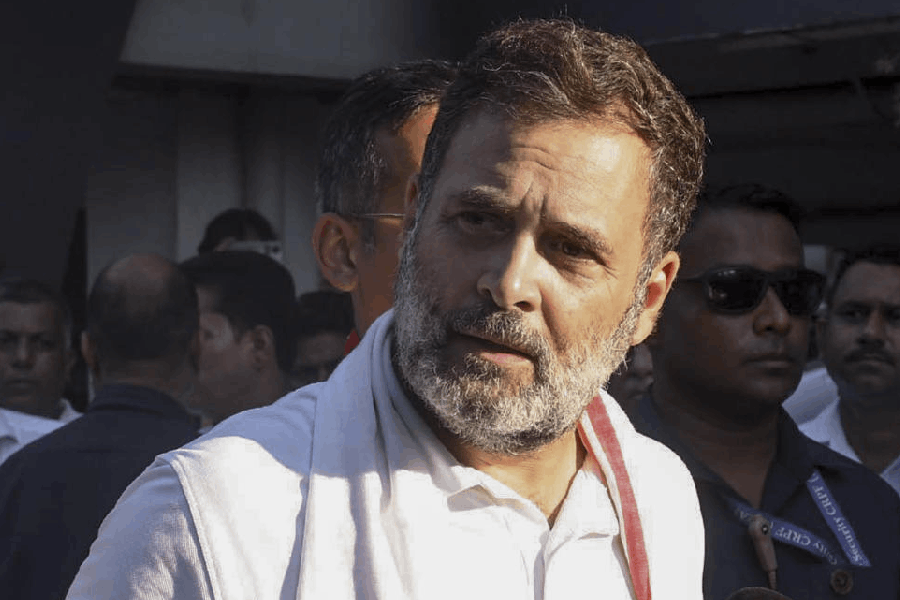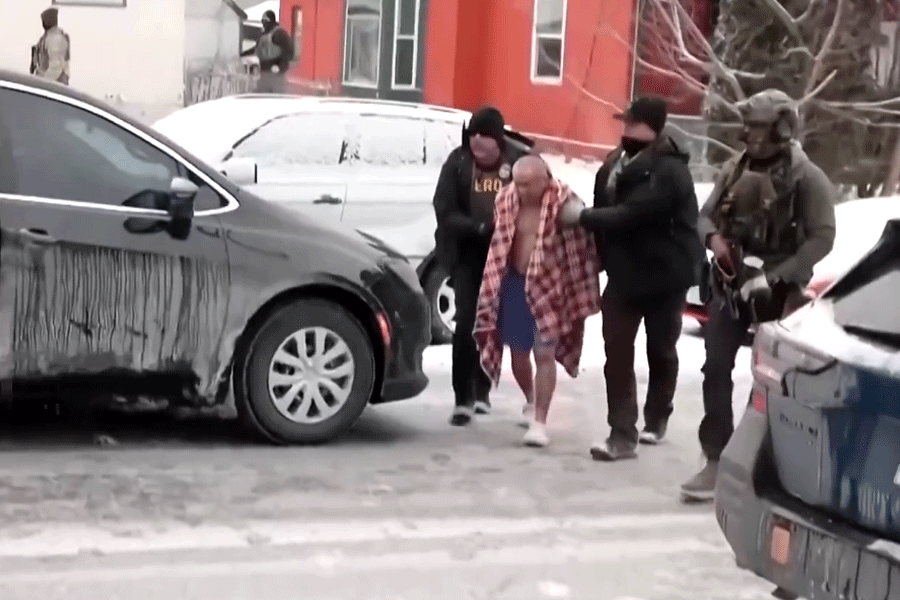Public complacency over personal precautions against Covid-19 appears to be driving the troubling upsurge in daily new cases in Maharashtra and some other states, a preliminary scientific assessment and a nationwide survey have independently suggested.
Health officials on Tuesday tentatively ruled out any link between the upsurge and mutations in coronavirus variants, even as the private survey found that compliance with mask-wearing has fallen to 30 per cent from 67 per cent in September 2020.
Over half of the 8,321 people surveyed in 238 districts across India also said there was “no compliance” in their localities with physical distancing guidelines that require people to avoid crowds and maintain a distance of six feet from others.
The survey’s findings come amid concerns among health experts that since the relaxation of restrictions imposed under the Covid-19 lockdown, people have started moving freely, meeting friends and relatives, visiting malls, attending weddings and social functions — while simultaneously abandoning precautions.
The further away from large metros and cities, the less the compliance with mask-wearing, according to the study conducted by LocalCircles, a community social media platform that says it undertakes surveys to guide policy and interventions. Mask compliance was 35 per cent in large metros or tier-1 cities, but fell to 29 per cent in tier-2 cities, and to 19 per cent in tier-3 locations and rural districts.
The survey sought to capture citizens’ experiences and observations of whether people in their areas or districts are complying with guidelines on masks and physical distancing. It has found that only 12 per cent of those surveyed believe physical distancing “is effective”.
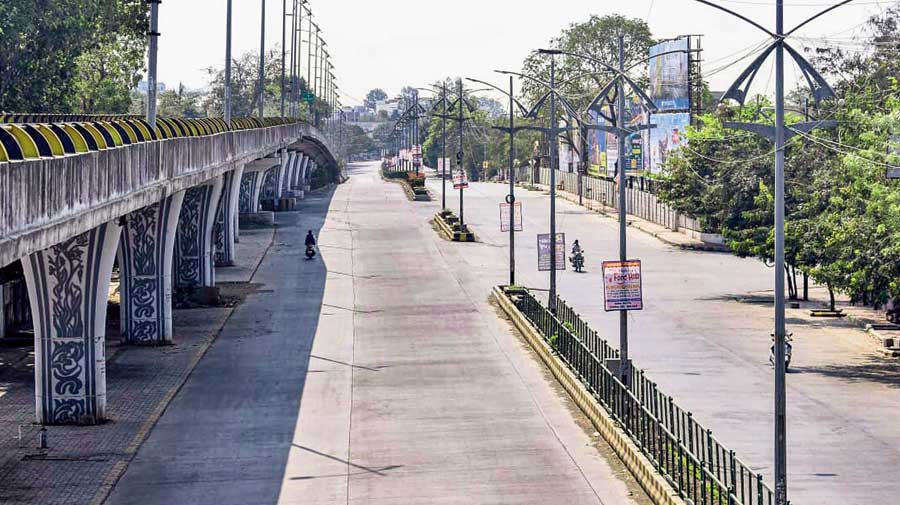
Streets wear a deserted look due to Covid-induced restrictions at Amravati, Maharashtra, on Wednesday. The state on Wednesday witnessed a sharp rise in coronavirus cases, with more than 8,000 new infections and 80 deaths being reported in the past 24 hours. PTI
Central health teams are trying to decipher reasons for the upsurge in cases in Maharashtra, Punjab, Madhya Pradesh and Chhattisgarh. The teams will convey to state authorities the steps they would need to take to curb the growing counts, a senior health official said.
Although India’s Covid-19 epidemic has steadily shrunk since its peak with over a million patients in mid-September, health officials and experts have consistently cautioned that a large pools of people across the country remain susceptible to the infection and need to adopt all precautions.
Medical experts believe the current rise in several states could be due to either poor compliance with personal precautions, gaps in the public health response, new coronavirus variants that spread quickly, or a combination of any of these three factors.
But senior health officials said on Tuesday that preliminary assessments for now do not point to the role of any foreign-origin or domestic coronavirus variants in the observed upsurge.
“There is no reason for us to believe on the basis of the scientific evidence today that they (coronavirus variants) are responsible for the upsurge of the outbreak we see in some districts of Maharashtra or in Kerala,” said Vinod Paul, chair of the national Covid-19 task force.
“But, this is a work in progress — we will continue to watch the variants,” Paul said.
A nationwide coronavirus genome sequencing effort has so far detected 187 samples positive for the UK variant and six samples positive for the South African strain. Both these variants have the capacity to spread faster than other circulating coronavirus strains.
The sequencing effort has also revealed multiple domestic variants such as those with mutations designated as E484Q and N440K but, Paul said, there is no evidence so far to suggest that either of these variants has any public health relevance.

